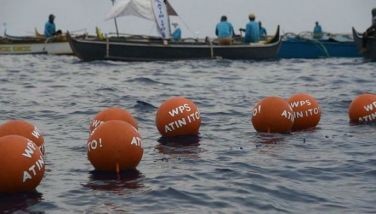Remittance inflows seen slowing in Q3
MANILA, Philippines - UK-based investment bank Barclays and Dutch financial giant ING Bank both expect cash remittances from overseas Filipinos to slow down in the third quarter of the year amid the continued weakness of regional currencies against the US dollar.
Rahul Bajoria, economist at Barclays Bank Singapore, said the weakness of regional currencies against the dollar have been holding overseas Filipinos from sending more money to their loved ones in the Philippines.
While seasonality would imply that remittances should have increased month on month, he explained excessive currency weakness in key countries such as Singapore, Malaysia and in some Middle East countries weighed on valuations.
“As such, with the Philippine peso being an outperformer against most regional currencies, and with remittances reported in US dollar, flows continue to be weighed by the sharp declines seen in regional currencies,” he said.
Latest data from the Bangko Sentral ng Pilipinas (BSP) showed the amount of cash sent home by Filipinos living and working abroad fell for the first time in over 12 years in August but remained in positive territory in the first eight months of the year.
Cash remittances amounted $2.04 billion in August or 0.6 percent lower compared to $2.06 billion in the same month last year. This was the first time since April 2003 when the amount of money sent home by Filipinos contracted 10.9 percent.
The decline was traced to the depreciation of some currencies against the dollar particularly the euro, Canadian dollar and the Japanese yen. The weakening of these currencies reduced the dollar equivalent of remittances sent from host countries.
“We believe the risk of the next print also being negative has risen, and remittances overall could be negative for the third quarter. Weakness in host countries’ currencies may also push some overseas workers to hold off from sending money home, which may result in higher remittances closer to the festive season,” Bajoria said.
However, Barclays is confident remittances would bounce back in the fourth quarter of the year as Filipinos abroad send more money ahead of the Christmas season.
“This is unlikely to be a significant concern, as we think a potential decline in remittances would only likely prove temporary. With the recent rebound in regional currencies, we expect remittance flows to improve in the fourth quarter,” he said.
On the other hand, ING Bank Manila senior economist Joey Cuyegkeng said a flat growth in cash remittances is expected this year as the country booked its first back-to-back weakening of growth since early 2009.
Cuyegkeng explained part of the weakness of remittances could be attributed to a strong dollar against the currencies of host economies such as euro zone, Japan and Singapore.
Remittances from the Middle East dropped 6.8 percent in the first eight months of the year as low oil prices affected fiscal spending in the region. Likewise, remittances from the euro zone fell six percent from January to August this year.
“Slower growth or contraction in remittances from these regions would continue to weigh on remittances. A flat growth this year, an unlikely scenario, would still mean a cash remittance of $24.3 billion,” he added.
- Latest
- Trending

































